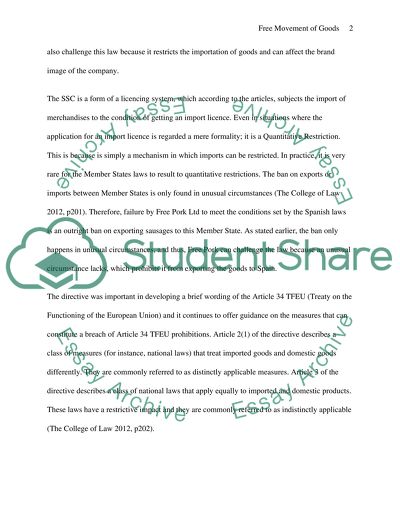Cite this document
(“Free Movement of Goods Article 34 and 36 Essay Example | Topics and Well Written Essays - 2250 words”, n.d.)
Retrieved de https://studentshare.org/law/1455438-problem-question-free-movement-of-goods-article
Retrieved de https://studentshare.org/law/1455438-problem-question-free-movement-of-goods-article
(Free Movement of Goods Article 34 and 36 Essay Example | Topics and Well Written Essays - 2250 Words)
https://studentshare.org/law/1455438-problem-question-free-movement-of-goods-article.
https://studentshare.org/law/1455438-problem-question-free-movement-of-goods-article.
“Free Movement of Goods Article 34 and 36 Essay Example | Topics and Well Written Essays - 2250 Words”, n.d. https://studentshare.org/law/1455438-problem-question-free-movement-of-goods-article.


